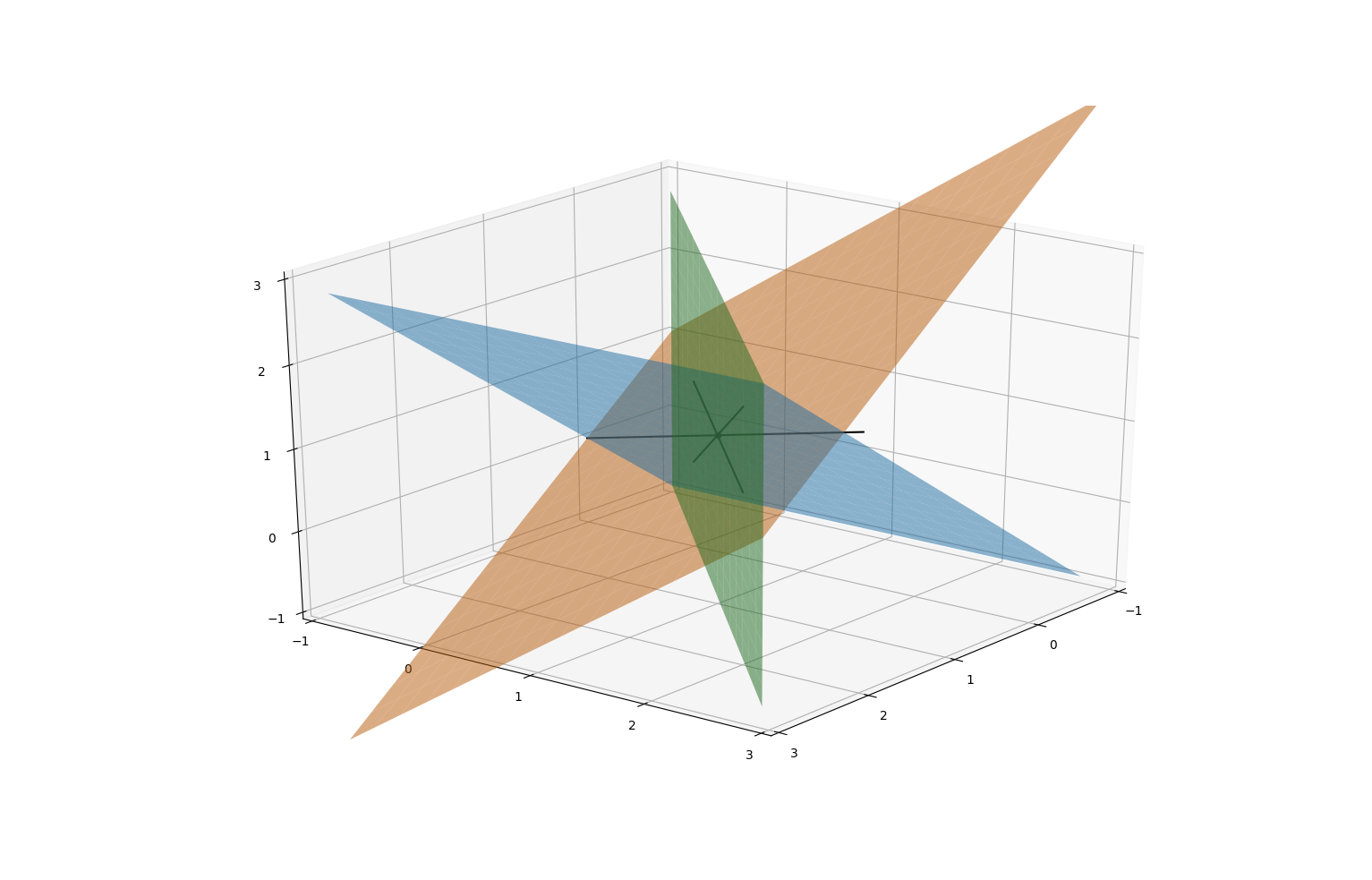More generally, the dimension of the subspace of solutions equals the number of free variables: we can think of the free variables as parameters for describing points in the subspace of solutions.
18. Geometric viewpoint on simultaneous equations, 2
18. Geometric viewpoint on simultaneous equations, 2
3 variables
Now let's look at higher dimensional systems.
Consider the equations The set of points whose coordinates satisfy these equations is a subset of 3-dimensional space . Each equation cuts out a plane; their intersection (the set of simultaneous solutions) is a line. :

The solution of the equations is , ( is a free variable); this gives us a parametrisation of the line of intersection: it consists of vectors of the form .
Each equation gives us a plane. This plane is orthogonal to the vector . The -intercept is where , so .
Let's consider the system The first two planes are the same as before; the third equation gives a third plane. The set of solutions is the set of triple intersections between these planes. Solving, we get and , so . Therefore there is a unique triple intersection point at .

Higher dimensions
An equation in variables defines a hyperplane in -dimensional space . This is the hyperplane orthogonal to the vector .
If is a vector of variables and is a system of simultaneous equations encoded with an -by- matrix then each row of defines a hyperplane in . The set of solutions is a subspace of . Subspace is a catch-all name, which includes points, lines, planes, hyperplanes, and everything in between (for which we don't have everyday words).
Consider the equations and . This is a pair of equations in four variables, so defines a subspace of solutions in . Each equation gives a 3-dimensional hyperplane in . Their intersection is a 2-dimensional subspace (plane) living in . Solving the equations: , . We see that are free variables and are dependent variables. The fact that there are two free variables is another way of saying that the subspace of solutions is 2-dimensional: each free variable is a coordinate on the subspace of solutions.